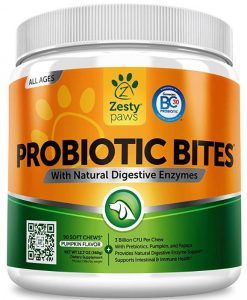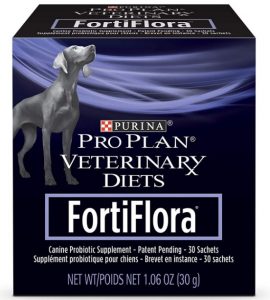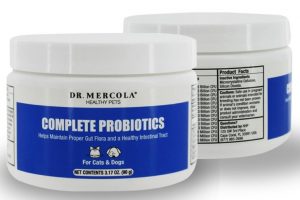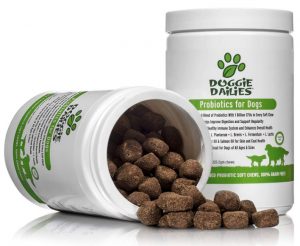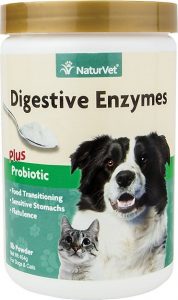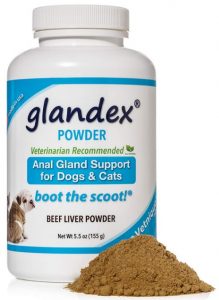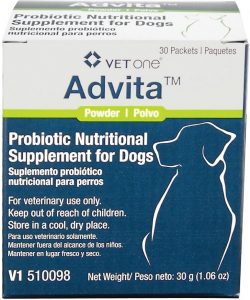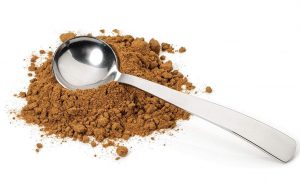Tips on Using Dog Probiotic Supplements
Here are some tips on dog probiotics. We answer all the most common questions that you have about probiotics.
How often should I give my dog a probiotic? – Most probiotics recommend to give them to your dog every day. This is perfectly acceptable and works fine. For further guidance, you can consult your veterinarian.
How much probiotic should I give my dog per day? – This just depends on the size of your dog and the type of probiotic that you have purchased. The label will have all the information you need for proper dosing.
What happens when I take my dog off probiotics? – You will still notice positive benefits if you take your dog off probiotics. This is assuming that the colony has already formed in their intestine. The exact time that these benefits last vary depending on your dog and the colony, but a few weeks is typical.
We still recommend keeping your dog on probiotics for maximum efficacy though.
What is the difference between these probiotics and the one my vet recommends?
The only difference (usually) is the price. Your vet’s office has a large markup on probiotic supplements. Fortunately, it is just an over the counter medication that you can purchase for much less online.
When should I give my dog probiotics? – Generally, you only need to give your dog probiotics if they have any sort of digestive problem. The easiest way to know if they have digestive problems is to look at their stool. If it looks unusual on a consistent basis, then you should take them to the vet. Many times it is just their diet, but sometimes it is the bacteria in their gut. A probiotic can solve that problem.
Probiotics also help with immune health. This means it is always a good idea to give your dog a probiotic to keep them healthy, but it is no way a required supplement.
Finally, sometimes your dog may have other problems stemming from their digestive issues. This usually manifests itself as a problem with the anal glands. In that case, a probiotic such as Glandex should work to solve that problem.
Can my dog take probiotics? – Generally, yes. There is no reason your dog should have a problem taking a probiotic. You should still consult your veterinarian before giving your dog a probiotic supplement though.
Will, my dog eat their probiotic? – Yes. All the probiotics listed are either meat-scented or a powder that you can easily mix with meat. This makes it irresistible to all but the pickiest dogs.
If your dog is very picky, then wrapping the probiotic in their favorite treat (usually meat) should work perfectly fine. Even the pickiest dogs cannot resist eating meat. If you still cannot get your dog to eat the probiotic, then we recommend a powder probiotic. The Advita probiotic does not have any smell, which makes it easy to conceal your dog’s food.
Can my dog overdose on a probiotic supplement? – No. Probiotics are a bacterial supplement, so your dog cannot overdose on them. This does not mean to give your dog too many probiotics, but they will not have any problems if you accidentally give them an extra dose. More probiotics do not improve their efficacy either.
How long does it take to notice positive benefits? – It depends on your dog and the probiotic. Two to five weeks is generally what most manufacturers state. It just depends on the probiotic and your dog.
Remember, it takes time for the bacterial colony to build up in your dog’s gut. Do not panic if you do not notice improvement before one month has elapsed.
Final Thoughts
All in all, you cannot go wrong with any of the probiotics listed above if you are looking to treat any digestive issues in your dog. Our top pick for a great general purpose probiotic is the Zesty Paws probiotics simply because it has the most bacteria and the most CDU of any of the probiotics. It still comes at a great price too when compared to purchasing at your vet’s office.
 Despite this fact, many people will give human grade probiotics to their dogs. The efficacy and risks of giving human probiotics to a dog are unknown. Fortunately, there are probiotics designed specifically for dogs.
Despite this fact, many people will give human grade probiotics to their dogs. The efficacy and risks of giving human probiotics to a dog are unknown. Fortunately, there are probiotics designed specifically for dogs.


